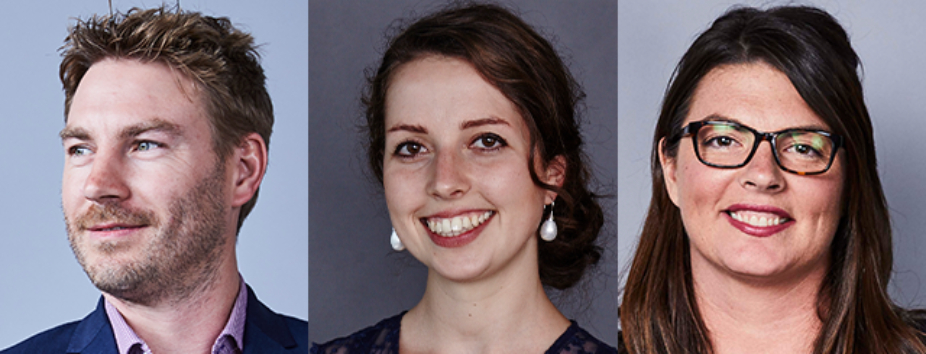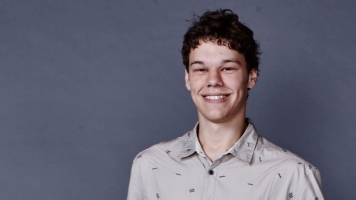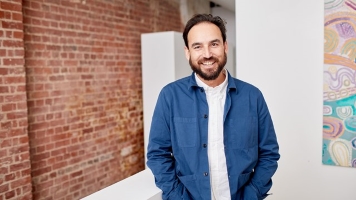
Samantha Payne has successfully lobbied to have workplace laws changed, recognising people need time to grieve after losing a child through miscarriage.
Leela Dilkes-Hoffman has finished her PhD in biodegradable plastics and is now in the UK inspiring some of the world’s biggest businesses to rethink their approach to packaging.
Nick Opie has commenced human trials for the Stentrode – a tiny tech implant he created that can read minds and translate thoughts into actions, giving newfound freedom to people with paralysis and illnesses such as motor neurone disease.
These are just three of the 500 everyday Australians we’re proud to call Westpac Scholars.
Over the past five years, in partnership with 22 universities, the Westpac Scholars Trust has invested in and supported people like Sam, Leela and Nick to help bring their big ideas and initiatives to life.
This month the Trust will celebrate its first 500 Westpac Scholars by looking at the journeys and achievements of a few of these individuals, and how their Westpac Scholarships have helped them along the way.
Whether it’s scientific breakthroughs, creating jobs for marginalised Australians, developing programs to address mental health challenges, or using big data to design more inclusive cities, these inspiring individuals are often the humble achievers behind many impactful initiatives in our communities.
According to Westpac Scholars Trust Acting CEO, Amy Lyden, “There is a common quality within all Westpac Scholars. It’s this unwavering desire to make a difference. Seeing how far the scholars have come, and the impact they are creating, really reinforces the value of this program.”
Associate Professor Nick Opie, a 2017 Westpac Scholar and biomedical engineer at the University of Melbourne says, “Without Westpac supporting my research over the three years, what has happened now might have been a different story, if at all. I’m very thankful they shared my vision.”
In 2017 Nick received a $570,000 Research Fellowship from the Trust and University of Melbourne to continue his research into the Stentrode. In 2020 he commenced human trials on four Australians in Victoria, and in June this year Nick and his company Synchron received a $50 million investment to expand their clinical trials into the US.
“The Fellowship is unique in that it not only supports personal growth, but actively encourages it through the organisation of different workshops and events,” says Nick.
“In particular, the leadership development opportunities encourage and empower us to not only conduct world class research, but to ensure that we are trained as leaders who can continue to have a global impact.”
Leadership development is a key component of all five scholarship programs the Trust offers, alongside creating a community of support for the scholars through the Westpac 100 Scholars Network (W100), the official alumni program.
“Without my Westpac scholarship I would not have the confidence in myself to lead the change I'm leading. This program has been a huge journey of validation in me and my skills,” says 2020 Westpac Scholar Samantha Payne, founder and CEO of the Pink Elephants Network.
After three years of lobbying, Sam and the Pink Elephants Network team were elated to see proposed amendments to the Fair Work Act introduced into parliament in June. If passed, it will mean couples who lose a baby during early pregnancy will be entitled to two days of paid leave.
“The legislation brings validation that miscarriage matters, that we are entitled to grieve the loss of our babies,” says Sam.
In the UK, 2016 Westpac Scholar Leela Dilkes-Hoffman is a project manager for the New Plastic Economy innovation team within the Ellen MacArthur Foundation, a global leading organisation focused on the circular economy. Last year they launched a publication - the Upstream Innovation Guide – led by Leela, which is now being used by some of the largest FMCGs to inspire innovation that can eliminate plastic waste and pollution.
This year, she has turned her focus to a particularly challenging topic, leading a team that is trying to understand the direction forward for flexible plastic packaging in a circular economy.
“In a circular economy, upstream innovation is about tracing a problem back to its root cause and tackling it there. It means that rather than working out how to deal with a pile of waste, we prevent it from being created in the first place,” says Leela.
Leela describes her scholarship experience as instrumental, “My Future Leaders Scholarship provided me with the funding to undertake an internship at the international charity I now work for.”
“Thanks to the scholarship, I am now in a position where I regularly interact with the sustainability leads from some of the biggest businesses in the plastic packaging space and get to directly support the transition from a linear economy to a circular economy for plastic packaging” says Leela.
“Nick, Sam and Leela are three inspiring stories of so many within the W100. They’re a great reflection of the diversity of talent we support and invest in,” says Amy.
Published 11 August 2021


